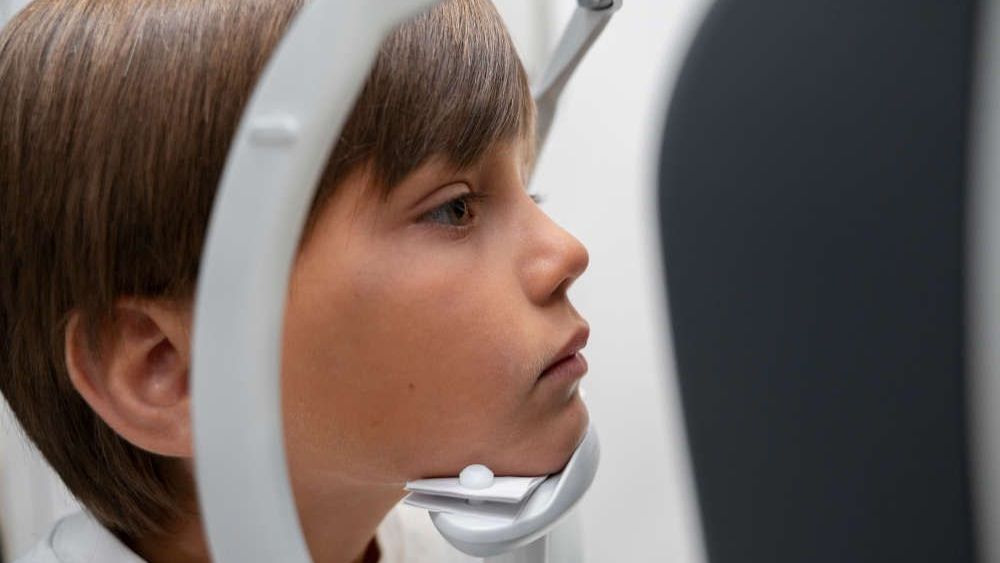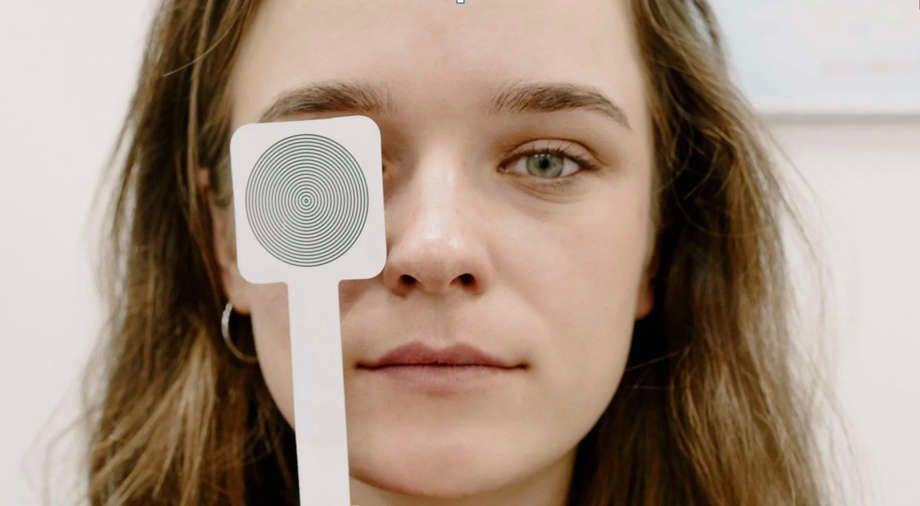Eye exam
Understanding the Importance of a Comprehensive Eye Exam
The importance of a comprehensive eye examination lies in the early detection of eye problems that may not present obvious symptoms. These issues can become difficult or even impossible to treat once they reach an advanced stage. Unlike school vision tests, a thorough examination by an optometrist is essential for ensuring good eye health. Automated vision tests are not sufficiently accurate or comprehensive to evaluate overall eye health.
Optometrists play a crucial role in diagnosing, treating, and preventing eye diseases and visual system disorders. They can detect general health problems during a comprehensive eye examination and refer patients to specialists if necessary. From childhood to old age, optometrists provide care to maintain good vision and optimal eye health, contributing to a better quality of life.
During a comprehensive examination, the optometrist assesses various aspects of vision and eye health, including visual quality, internal and external eye health, accommodation ability, eye movements and coordination, peripheral vision, color vision, and depth perception. Based on the results, they may recommend treatments such as glasses, contact lenses, vision therapy, medical treatments, or surgery.
It is important to emphasize that scheduling a comprehensive eye examination does not require a prior recommendation. It is advisable to find an optometrist nearby and schedule an appointment without delay. This simple step can help detect eye problems early and preserve long-term visual health. In conclusion, a comprehensive eye examination is an essential step in maintaining clear vision and optimal eye health throughout life.
Stay alert for symptoms that could signal a vision or eye health problem in your child. If you notice any of these symptoms, don't delay in making an appointment for a complete eye exam with your optometrist.
- red, itchy or watery eyes
- sensitivity to light
- eye that constantly squints inward or outward
- excessive squinting, rubbing, or blinking of the eyes
- lack of concentration
- child who hides or closes one eye
- irritability or short attention span
- child holding objects too close
- child who avoids books and television
- child who is visibly frustrated or grimacing
Eye exam: Adult
Regular eye exams are crucial to maintaining eye health throughout life. For
adults aged 20 to 64, a full examination should be carried out at least
every two years s, with annual frequency for diabetics. Health problems other than vision may require more frequent or in-depth examinations.
People aged 40 and over are more likely to develop eye problems age-related problems, some of which may be asymptomatic until they are advanced. Without an eye exam, these problems may go unnoticed and become difficult or impossible to treat. In short, regular monitoring of eye health is essential to preserving vision and detecting problems early.
The most common eye problems in adults include:
- Presbyopia : a natural effect of aging that reduces the ability to focus on nearby objects over time. Presbyopia can cause headaches, blurry vision, sore eyes, or require the use of brighter lighting.
- Cataracts : Distorted or blurred vision caused by the lens losing its transparency over time. Cataracts may require you to change your glasses or have surgery. Wearing UV protective glasses helps delay the onset and progression of cataracts.
- Diabetic retinopathy: Weakening of the tiny blood vessels at the back of the eye due to uncontrolled blood sugar levels in people with diabetes. It leads to bleeding, new blood vessel formation, and swelling of the retina, which causes vision changes. If left untreated, diabetic retinopathy can cause blindness.
- Age-related macular degeneration : disease that produces degenerative changes in the back of the eye and affects central vision. It is the leading cause of vision loss in older adults.
- Glaucoma : also called the “silent thief” of vision, because often no symptoms appear until significant damage has been done. It causes damage to the nerve tissue at the back of the eye, often linked to increased eye pressure. If not detected and treated early, it can lead to irreversible vision loss.
Review of the flight: Aînés
Starting at age 65, adults are recommended to have an eye exam every year.
Adults aged 65 and older are more likely to experience the vision problems mentioned above. They are also at increased risk of developing low vision, a condition that significantly limits visual ability and can interfere with daily activities if left untreated. Early detection and treatment of vision problems, even if they do not have noticeable symptoms, is crucial to preserving your eyesight and maintaining an optimal quality of life.
Price of an eye exam.
An eye exam is essential to keep your eyes healthy and ensure optimal vision. At Lunetterie F. Tohmé, we offer comprehensive examinations, carried out by qualified professionals and using modern equipment, to meet the precise needs of each customer.
The price of an eye exam can vary according to several criteria, including the nature of the exam and the services included. Eye examinations are not limited to checking vision correction. They can also detect potential eye problems, such as glaucoma or cataracts, as well as conditions related to general health, such as diabetes. This kind of early detection is invaluable, and is one of the reasons why a comprehensive eye examination can be an excellent investment in long-term health.

What's more, at Lunetterie F. Tohmé, we're committed to providing personalized service for every patient. Our optometrists take the time to explain each step of the exam, listen to your needs and answer your questions so you feel at ease. The experience is positive and attentive, so that you leave with a clear vision and understanding of your eye health.
Finally, it's important to remember that the frequency of examinations varies according to your age and state of health. In general, an annual examination is recommended, especially for children, adults over 40, and those with a history of eye problems. For healthy young adults, an examination every two years may be sufficient.
For more information, please visit our website or come into our store. At Lunetterie F. Tohmé, we look forward to welcoming you and offering you exceptional service to care for your vision.
Do an eye exam alone.

Having an eye exam alone can give you a general idea of your visual acuity, but it's important to note that it's not a substitute for a visit to a doctor. eye health professional. A complete examination carried out by a optometrist is recommended to accurately assess your eye health. However, here are some simple steps you can follow to perform a basic eye exam at home:
1. Visual acuity test:
- Stand about 10 feet from a visual acuity test poster or screen.
- Cover one eye with one hand (use an eye patch if you have one) and read the letters or numbers displayed.
- Write down the letters or numbers that you can read correctly.
- Repeat the same step with the other eye.
- If you wear glasses or contact lenses, perform the test once without correction and once with.
2. Near vision test:
- Hold a book or newspaper at a normal reading distance.
- Read the text and note if you have difficulty seeing up close.
- This can give you an idea of your near acuity.
3. Color vision test:
- If you want, you can take a quick color vision test using online tests. Look for color blindness test images (like numbers hidden in colored circles) and see if you can identify the numbers.
4. Amsler test:
- If you have central vision problems, an Amsler test may be helpful. This is a grid with straight lines that resemble a grid. Focus your gaze on the center point of the grid and note whether you notice any blurry areas, distortions, or missing lines.
However, it is important to emphasize that these tests are indicative and do not replace a thorough professional assessment. THE
optometrists use a variety of specialized tools and tests to assess eye health, vision correction, and overall eye health.
→ If you notice any visual problems, changes in your vision or have any concerns,
It is strongly recommended to consult an eye health professional for a complete and accurate examination.



